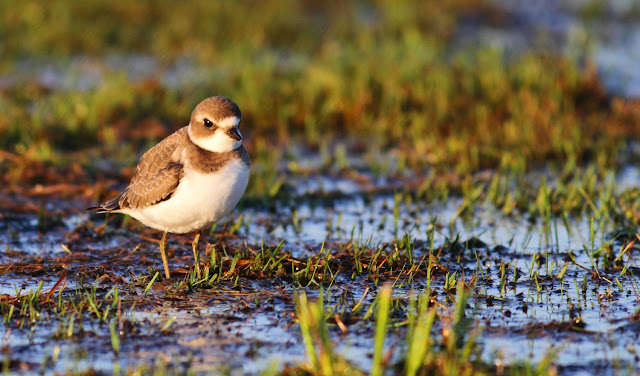Opportunity Among the Flooded Flats 18 August 2017
Nothing captures the nervous energy of a long-distance bird migration quite so well as a mixed flock of shorebirds, actively foraging over beaches, mud flats, and flooded flats along the shores of Lake Superior. Shorebirds are iconic symbols of cooperative conservation efforts and champions of long distance migration, some species flying nearly pole to pole twice per year. Some of these shorebirds even attain the famed status of "Moon Bird", the title given to a bird that has flown as many miles as Earth to Moon.
Lesser Yellowlegs
Shorebirds live life on the edge, and they are dependent upon good migratory stopover sites. Feeding at a reliable stopover provides enough food to build muscle back to flying strength and a stockpile of body fat. Some of these birds will increase their weight by 30 to 50 percent before flying onward in their journey. Failure to find the good stuff at a stopover site could be the bitter end!
Buff-breasted Sandpiper
Mixed flock of Sandpipers
The summer of 2017 was unusually wet in Lake Superior region. While heading out to Park Point near Duluth, Minnesota, we were excited to see a huge mixed flock of shorebirds. The diversity of birds heading south from the Arctic Circle had found a large, flooded ball field and had descended upon it as if it were an Arctic mudflat. The human-made landscape, complete with exotic species of annelid worms, was a nutrient-rich and calorie-rich stand-in for wilder stopovers. The birds eagerly mingled at the edges of shallow pools and probed the wet, black soil for invertebrate life. Every so often, an airplane roared overhead from Sky Harbor, sending the birds scattering in flight. Within seconds, they returned, feeding with as much enthusiasm as before.
Lesser Yellowlegs
Semipalmated Plover
Pectoral Sandpiper
All images were made with a Canon 7D Mk1 and a Canon EF 400mm f5.6 L lens. I made the images handheld, but I was often laying prone or kneeling low to the ground.








No comments:
Post a Comment